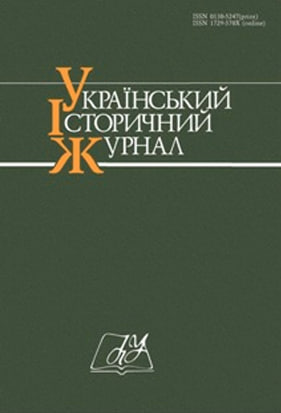Shaping Soviet Tax Policy (Early 1920s): Historiographical Aspects
DOI:
https://doi.org/10.15407/uhj2022.05.134Keywords:
domestic historiography, historiographical process, new economic policy, tax policy, tax system, Narkomprod of the UkrSSR, Narkomfin of the UkrSSRAbstract
The purpose of the article is to analyze the historiographic work of Ukrainian scientists on the history of Soviet tax policy in the initial period of its formation.
The methodological basis of the research are principles of historicism, objectivity and systematicity. While solving the tasks, general scientific and special research historiographical analysis and synthesis of knowledge development, generalization, quantitative, historical-comparative, chronological, retrospective methods were used.
The scientific novelty of the work is a comprehensive analysis of the state of study of the history of the formation and initial period of operation of the Soviet tax system. Conceptual approaches and techniques used by domestic and foreign specialists for the purpose of scientific reconstruction of this problem, relevant for current practice, have been clarified.
Conclusions. The analysis of the historiographic work of modern Ukrainian historians has shown that this topic was widely studied. By reinterpreting publicly available sources and bringing into scientific circulation little-known or previously unavailable archival materials, both domestic and foreign, the researchers offered a new vision of the Soviet leadership’s attempts to improve economic indicators through transformations and redistribution of financial flows in the Soviet republics, in particular in UkrSSR. Authors have made significant corrections to the content of terminological and conceptual apparatus related to the tax system. At the same time, the fact of mechanical equation of the concepts and phenomena of “tax policy” and “tax system” in historiography, a presence of a class approach, a need for comprehensive generalizing works, which would reinterpret the topic in the broad context of modern economic transformations, is emphasized.


